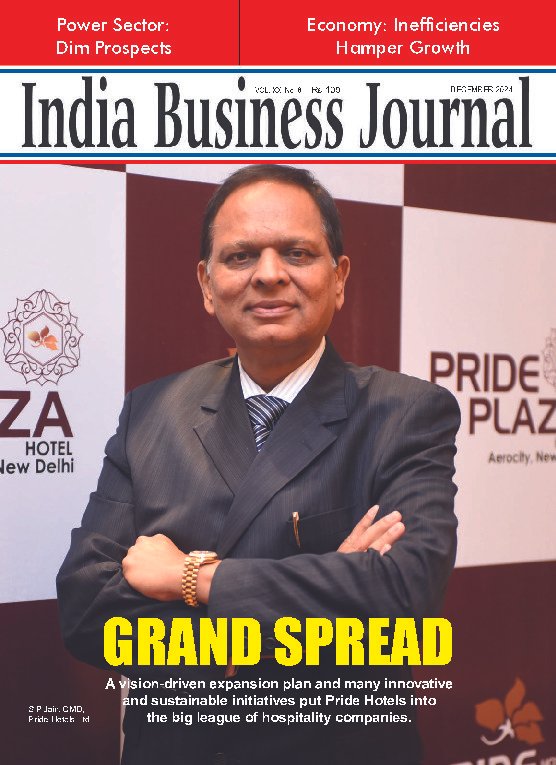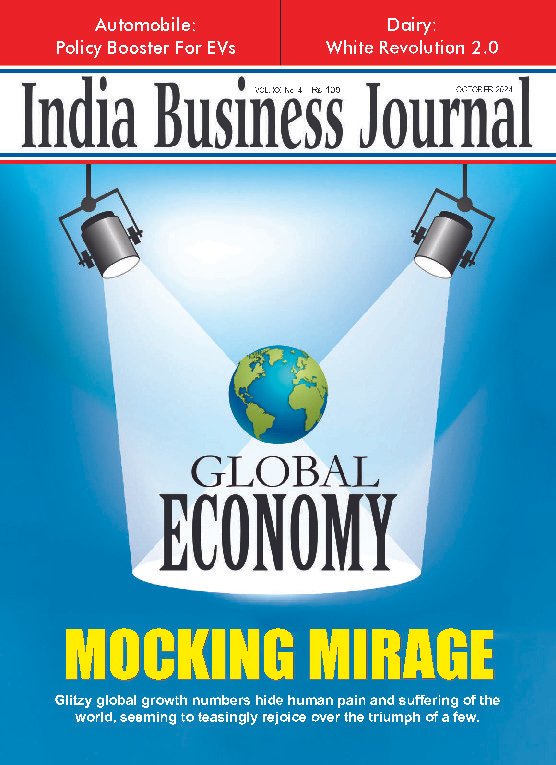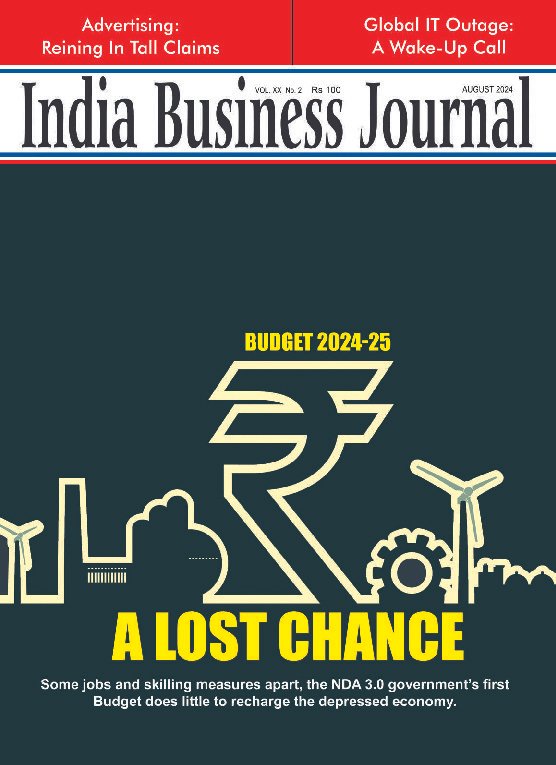AT THE HELM
AT THE HELM - Arvind Panagariya, chairman, 16th Finance Commission.
- IBJ Bureau
- Feb 03, 2024

It
is a second homecoming for Arvind Panagariya this new year. The eminent economist,
who teaches political economy at Columbia University in New York, has recently
been appointed the chairman of the 16th Finance Commission. Mr Panagariya
– who was the first vice-chairman of the NITI Aayog between 2015 and 2017 –
will once again have to take on many challenges in his current role.
Challenges,
of course, are hardly new to the 71-year-old professor, who has travelled quite
a distance from a small town in Rajasthan right up to the world-renowned
university in New York. Born in Bhilwara in 1952, young Arvind completed his BA
from University of Rajasthan, Jaipur, and later did his PhD in economics from
Princeton University, New Jersey. Joining Columbia University as professor of
political economy, Mr Panagariya collaborated with his eminent Indian economist
colleague and professor, Jagdish Bhagwati, to publish many research papers and
books jointly.
In
between his teaching career, Mr Panagariya had been chief economist of the
Asian Development Bank. Besides, he held important positions at the World Bank,
the International Monetary Fund and the World Trade Organization.
When
the Planning Commission of the Socialist-era India was replaced by the NITI
Aayog as the new policy-making body by Prime Minister Narendra Modi in 2014, Mr
Panagariya was the natural choice to head it. The eminent professor took a
sabbatical from Columbia University and took over as the NITI Aayog’s first
vice-chairman in January 2015.
The
new chief of NITI Aayog had drawn up ambitious plans to put India on a
fast-growth track. But somehow, the plans remained only on paper. In two years,
Mr Panagariya quit the think-tank and returned to his teaching job on the
pretext of not getting an extension of leave from his university.
And
now a decade later, Mr Panagariya is back in the policy-making realm with his
new appointment. The 16th Finance Commission, which Mr Panagariya
now chairs, has been tasked to submit its report for the five-year period between
2026-27 and 2030-31to the President by October 31, 2025. The Finance Commission
is a constitutional body that provides recommendations to the government on the
Centre-State financial relations. The 15th Finance Commission under former
top bureaucrat N K Singh had recommended that States be given 41 per cent of
the divisible tax pool of the Centre during the five-year period of 2021-22 to
2025-26.
Meanwhile,
as the new finance panel gets down to business, it will have to work through
quite a few challenges to devise a new finances-sharing formula. These are
particularly tough times with fiscal federalism under severe strain. Lower-income
States of north and east India get a larger share of the divisible pool of
resources. Southern States have been expressing grievance of getting an unfair
deal and being penalised for their development and better population and fiscal
management. Most of the States are also unhappy with the Goods and Services Tax
(GST), which, they claim, has denied them many important sources of income.
The
finance panel will have to take all these concerns on board and come up with
solutions that balance the concerns of all the stakeholders concerned. Mr
Panagariya will perhaps have to summon all his impeccable academic credentials
and rich administrative experience and come up with innovative solutions
acceptable to all.
























Report By
View Reporter News